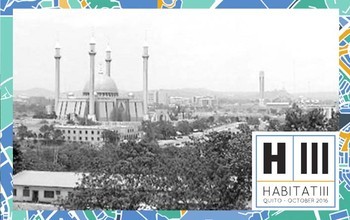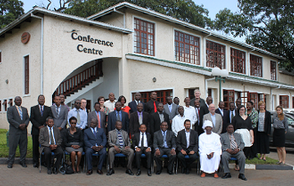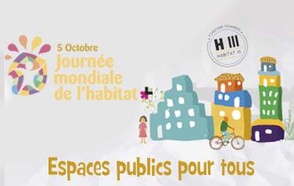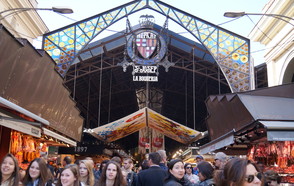
CGLU et ONU-Habitat mettent l’accent sur l'importance que revêt l'espace public lors de la Réunion régionale africaine préparatoire à Habitat III.
La valorisation des espaces publics est devenue un enjeu central des politiques dans grand nombre de villes dans le monde, y compris les villes africaines. Ils jouent un rôle clé pour atteindre les objectifs de développement durable comme l'objectif 11 " Faire en sorte que les villes et les établissements humains soient ouverts à tous, sûrs, résilients et durables.
The Habitat III Africa Regional Meeting took place in Abuja, Nigeria from 24-26 February, 2016. The event was an opportunity for regional stakeholders to meet, discuss, and identify priorities for sustainable urban development in the coming decades. The meetings were attended by ministers, leaders of local governments, civil society and private sector organizations, professionals and experts, academia, UN agencies among them UN Habitat and the Habitat III Secretariat. The meeting included a technical segment, a political segment, as well as side events.
UCLG and UN Habitat raised the topic of public spaces during a side event on 25 February, 2016. UCLG-Africa, led by the secretary general Mr. Jean-Pierre Elong Mbassi, was actively involved in the Abuja Meetings and participated in the side event on public spaces and the identity of African cities.
As part of the side event the findings of the UCLG learningpublication on African cities were presented by Costly Chanza, in particular the outcomes of the last Peer Learning Event Blantyre, Malawi that took place in December 2015 (find note here).
Here are some of the key messages discussed during the side event:
- Pay more attention to public spaces as public services, not only as a matter for the park departments. Public spaces are not only parks they are also key physical elements shaping cities and territories. Streets, laneways, alleys and roads are public goods. Therefore, they have to be maintained, organized and planned with the same rights and responsibilities in mind as other public services
- Foresee diverse public spaces in extension plans, in particular for intermediary cities.
- Cities are diverse. Thus, public spaces should correlate with this diversity. Different types of public spaces for different needs. Needs here are considered for inhabitants and local governments.
- Access for all, ban gated communities: public space is where all citizens can legitimately go. Old and new African elites seem to forget that they privatize public space when they fence off beaches, streets and entire neighborhoods. Private developers can also invest in public space, for example parks, squares and street furniture which is beneficial to the business environment. Public spaces should tackle discrimination.
- Acknowledge the role of the informal economy- provide policies for markets and street vending, they enable local economic development. The African economy is largely informal. Transition into formal economies cannot be reached by marginalizing those who are trying to make a living it should be an inclusive transition.
- Public space governance: building and maintenance should include more actors. It is important to involve the private sector and developers.
- Contract-led development is a public-private partnership where developers build and maintain. These contracts are part of the building licenses granted from the public to private sector actor-led development is built on the ground by local actors - both inhabitants and associations – this works particularly well at the neighborhood level.
- Include cultural activities and events.
- Cultural activities strengthen local and/national identities and bonds between communities. Public spaces are unique spaces where opinions, ideas and identity can be shared, discussed and celebrated freely.
- Think more about public space design.
-The design aspects, including urban furniture and plants, should be inclusive and flexible for different activities.
- The design of public space should promote diversity and be accepted by communities. The design should be affordable, using quality materials and be visually attractive.
- Include small scale community public spaces in (Slum) upgrading processes. Also known as mini parks these spaces are directly addressed to the local population living next to them. They have interesting qualities enabling social interactions between neighbors, providing a space for grassroots events, for meeting friends or as a space for relaxing.
Participants actively contributed during the side event and asked for the public space issue to be clearly included in the Abuja Declaration for future implementation in other African cities. It is expected that the discussions in Abuja will provide input for the Thematic Conference to be held in Barcelona on 4-5 April where UCLG and the Global Taskforce will be involved.
Pour en savoir plus:
- Veuillez visiter la page web www.habitat3.org/abuja
- Veuillez lire les directives internationales sur la planification urbaine et territoriale (disponible en anglais)













